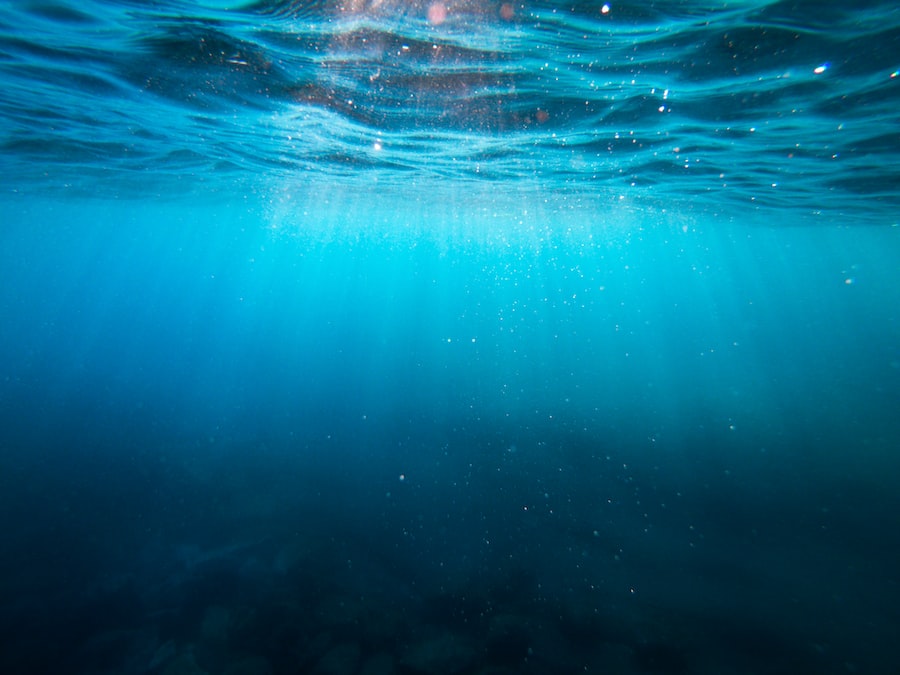Exploring the Benefits: Is Fish Tank Water Beneficial for Your Plants?

Using fish tank water for plant growth is a practice that has gained popularity among both aquarium enthusiasts and gardeners. The relationship between fish tank water and plants lies in the nutrient-rich properties of the water. Fish waste and uneaten food contribute to the high levels of nutrients found in fish tank water, making it an excellent natural fertilizer for plants. In this article, we will explore the benefits of using fish tank water for plant growth, including its nutrient content, cost-effectiveness, eco-friendliness, ease of use, and its positive effects on plant health and yield. However, it is important to also consider the potential risks associated with using fish tank water for plants.
Key Takeaways
- Fish tank water is beneficial for plant growth due to its nutrient-rich properties.
- Using fish tank water as a natural fertilizer can save you money on traditional fertilizers.
- Incorporating fish tank water into your plant care routine is easy and eco-friendly.
- Fish tank water can improve plant health and increase yield.
- However, there are potential risks to using fish tank water for plants, and it’s important to weigh the pros and cons before deciding if it’s right for your plants.
Nutrient-rich Water: How Fish Tank Water Can Benefit Your Plants
Fish tank water is rich in nutrients that are essential for plant growth. These nutrients include nitrogen, phosphorus, potassium, calcium, magnesium, and trace elements such as iron, manganese, and zinc. Nitrogen is crucial for leafy green growth, phosphorus promotes root development and flowering, while potassium helps with overall plant health and disease resistance. Calcium and magnesium are important for cell structure and photosynthesis, while trace elements play a vital role in various metabolic processes within plants.
Fish waste and uneaten food are the primary sources of these nutrients in fish tank water. As fish excrete waste, it breaks down into ammonia, which is then converted into nitrites and nitrates by beneficial bacteria in the aquarium. These nitrates are then absorbed by plants as a source of nitrogen. Additionally, uneaten food that sinks to the bottom of the tank decomposes over time, releasing nutrients into the water.
Natural Fertilizer: The Benefits of Using Fish Tank Water for Plant Growth
Using fish tank water as a natural fertilizer has several benefits compared to traditional fertilizers. Firstly, fish tank water is a sustainable and environmentally friendly option. Instead of relying on synthetic fertilizers that can harm the environment and contribute to pollution, using fish tank water allows for the recycling of nutrients that would otherwise go to waste. This reduces the need for chemical fertilizers and helps to maintain a healthy ecosystem.
Secondly, fish tank water provides a balanced mix of nutrients that are readily available to plants. Unlike synthetic fertilizers, which often contain high levels of specific nutrients, fish tank water offers a more holistic approach to plant nutrition. The combination of macro and micronutrients in fish tank water ensures that plants receive a well-rounded diet, promoting overall plant health and growth.
Cost-effective: How Fish Tank Water Can Save You Money on Fertilizers
| Metrics | Values |
|---|---|
| Amount of fish tank water used | 1 gallon |
| Amount of fertilizer saved | 1 pound |
| Cost of 1 pound of fertilizer | 10 |
| Cost of 1 gallon of fish tank water | 0.00 |
| Number of times fish tank water can be used as fertilizer | 10 |
| Total cost savings | 100.00 |
Using fish tank water as a natural fertilizer can save you money on traditional fertilizers. Synthetic fertilizers can be expensive, especially if you have a large garden or multiple plants to care for. By utilizing the nutrient-rich water from your fish tank, you can reduce or eliminate the need for purchasing fertilizers altogether.
The cost savings can be significant over time, especially if you have a large aquarium with many fish producing ample amounts of waste. Instead of letting this valuable resource go to waste, you can repurpose it for your plants and reap the financial benefits.
Eco-Friendly: The Environmental Benefits of Using Fish Tank Water for Plants
One of the major environmental benefits of using fish tank water for plants is the reduction in pollution. Synthetic fertilizers often contain harmful chemicals that can leach into the soil and waterways, causing damage to ecosystems and aquatic life. By using natural fertilizers like fish tank water, you are minimizing the release of these harmful substances into the environment.
Additionally, using fish tank water promotes sustainability by recycling nutrients that would otherwise be wasted. This reduces the need for synthetic fertilizers, which require energy-intensive manufacturing processes and contribute to greenhouse gas emissions. By opting for fish tank water as a natural fertilizer, you are making a positive impact on the environment.
Easy to Use: How to Incorporate Fish Tank Water into Your Plant Care Routine

Incorporating fish tank water into your plant care routine is relatively simple. The first step is to collect the water from your fish tank. It is important to note that the water should be free from any chemicals or medications that could harm your plants. If you use tap water in your aquarium, make sure to treat it with a dechlorinator before using it on your plants.
Once you have collected the fish tank water, you can use it to water your plants as you would with any other type of water. It is best to use the fish tank water within 24 hours of collection to ensure that the nutrients are still fresh and readily available for plant uptake. You can either pour the water directly onto the soil or use it to fill a watering can for more precise application.
Improved Plant Health: The Positive Effects of Fish Tank Water on Plant Growth
Using fish tank water for plant growth can have several positive effects on plant health. The nutrient-rich properties of the water provide plants with a balanced diet, promoting overall growth and development. Plants that receive adequate nutrients are more likely to have strong root systems, lush foliage, and vibrant flowers.
Furthermore, the presence of beneficial bacteria in fish tank water can help improve soil health. These bacteria break down organic matter in the soil, releasing nutrients and improving its structure. This, in turn, enhances nutrient uptake by plants and increases their resilience against diseases and pests.
Increased Yield: How Fish Tank Water Can Boost the Productivity of Your Plants
The use of fish tank water as a natural fertilizer can significantly increase the yield of your plants. The balanced mix of nutrients in fish tank water provides plants with everything they need for optimal growth and productivity. Plants that receive sufficient nutrients are more likely to produce larger and healthier fruits, vegetables, or flowers.
The increased yield can be particularly noticeable in vegetable gardens or fruit-bearing plants. For example, tomatoes grown with fish tank water may produce larger and juicier fruits, while peppers may have a higher number of peppers per plant. The increased productivity can be a rewarding outcome for gardeners looking to maximize their harvest.
Potential Risks: Understanding the Potential Drawbacks of Using Fish Tank Water for Plants
While using fish tank water for plants has many benefits, it is important to be aware of the potential risks involved. One of the main risks is the introduction of pests or diseases into your garden. Fish tank water may contain parasites or pathogens that can harm your plants. To mitigate this risk, it is recommended to filter the water before using it on your plants or to let it sit for a few days to allow any potential pathogens to die off.
Another risk is the imbalance of nutrients in fish tank water. While fish waste and uneaten food provide a good mix of nutrients, excessive amounts can lead to nutrient imbalances in the soil. This can result in nutrient deficiencies or toxicities in plants, affecting their growth and health. To avoid this, it is important to monitor the nutrient levels in your fish tank water and adjust accordingly.
Is Fish Tank Water Right for Your Plants? Exploring the Pros and Cons.
In conclusion, using fish tank water for plant growth has numerous benefits, including its nutrient-rich properties, cost-effectiveness, eco-friendliness, ease of use, and positive effects on plant health and yield. However, it is important to consider the potential risks associated with using fish tank water, such as the introduction of pests or nutrient imbalances.
Before deciding if fish tank water is right for your plants, weigh the pros and cons based on your specific situation. If you have a well-maintained aquarium with healthy fish and a surplus of nutrient-rich water, using fish tank water can be a great way to provide natural fertilizer for your plants. However, if you have concerns about potential risks or if you do not have access to fish tank water, there are alternative organic fertilizers available on the market that can also provide the necessary nutrients for your plants. Ultimately, the choice is yours to make based on what works best for your plants and gardening practices.



